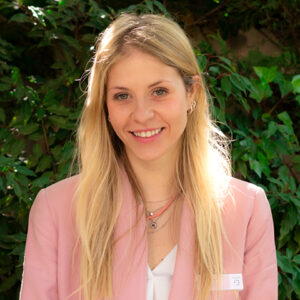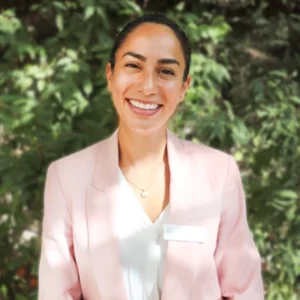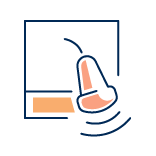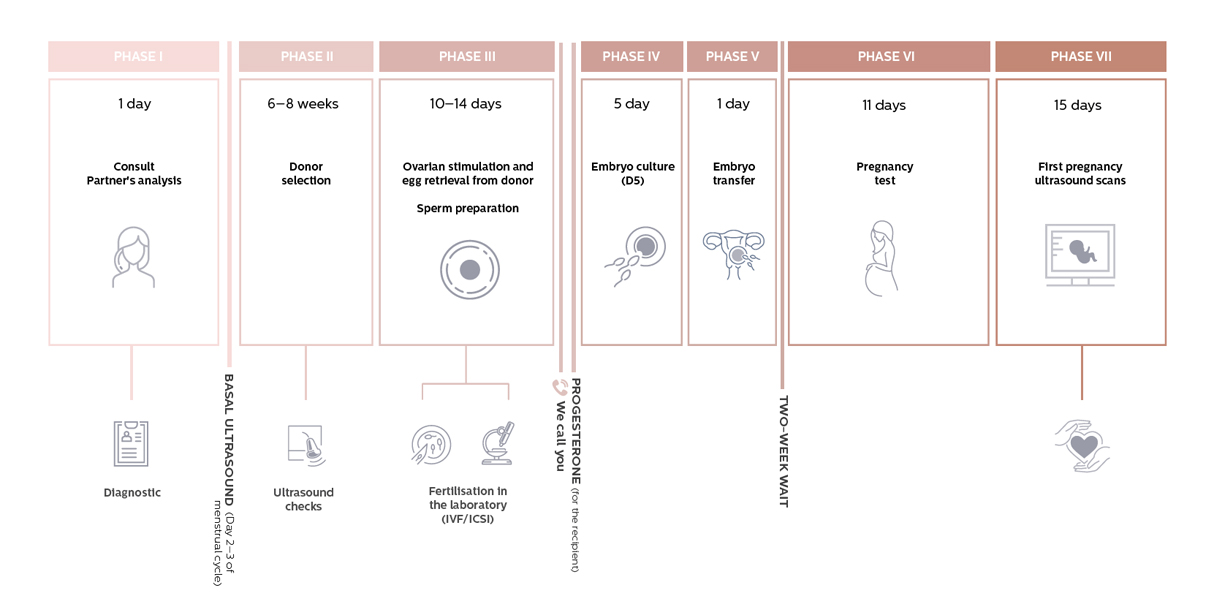IVF with egg donation
What can we do when a woman does not produce her own eggs or has a low ovarian reserve?
IVF treatment with egg donation is the most effective assisted reproduction technique. It uses eggs from an anonymous donor to create embryos of optimum quality. In this type of treatment, the sperm can come from the recipient’s partner or it is also possible to use a donor.

Ver vídeo
Would you like us to study your case?
What is ovodonation?
IVF with ovodonation is an assisted reproduction procedure in which the eggs of a donor are fertilised in the laboratory with the sperm of the male partner or a sperm donor. The resulting embryos are transferred into the uterus of the recipient, who carries the pregnancy to term.
Ovodonation is mainly used for couples with fertility problems related to the quality of the woman’s eggs. At Tambre we will always try to obtain good-quality embryos from the patient’s own eggs. However, in some cases, egg donation is the best or only option for achieving a successful pregnancy.
That is why egg donation is an appropriate treatment in the following cases:
- Women with ovarian failure due to menopause
- Women with low and/or poor oocyte quality
- If there have been low responses to ovarian stimulation or repeated failures in previous IVF / ICSI treatments
- Repeated miscarriages
- Chromosomal abnormalities in oocytes or embryos
- Women who have undergone ovarian surgery
- Women over 40 years of age
Types of egg donation
There are two types of egg donation:
Donor eggs and the partner’s sperm
Assisted reproduction treatment in the laboratory that consists of fertilising the eggs of an anonymous donor with your partner’s sperm.
Donor eggs and sperm
A technique that involves using the egg of a donor and the sperm of a donor (both anonymous) for fertilisation to take place.
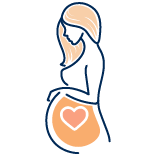
The importance of donor selection
IVF with donor eggs is the assisted reproduction technique that offers the best results. This is because the donors are young, healthy women, but the donor selection process at Tambre is also important, as is the quality of care provided to the donor throughout the process.
At Clinica Tambre we search for the optimum donor for each patient and follow a very demanding egg donation programme, based on these criteria:

All donors at our centre, as stipulated by the Assisted Reproduction Act, are between 18 and 35 years of age, and have undergone an extensive study to ensure that they are in optimum health. In addition to serological tests, an additional study is carried out which includes: genetic analysis with karyotype, cystic fibrosis, beta-thalassaemia and Fragile X, as well as a psychological evaluation. We also keep a DNA sample from the donor, with prior informed consent, in case it is necessary to use it in the future.

The ideal donor is selected according to the physical characteristics (race, skin, eye and hair colour, complexion, height and weight, hair type) of the recipient.

If desired, selection can also be made based on the genetic compatibility of the donor with the male (genetic matching).
At Tambre, from the moment the decision is made to opt for oocyte donation, we set about selecting the most suitable donor, in line with the aforementioned requirements.
We start to stimulate the donor’s ovaries with hormone medication in order to obtain as many good-quality oocytes as possible. Depending on the donor’s oocyte response, we can obtain between 6 and 15 oocytes on average.
On the day the oocytes are obtained from the donor, they will be fertilised with the couple’s sperm or that of a donor, by means of intracytoplasmic microinjection (ICSI).
At the same time as the donor’s ovarian puncture is performed, the male partner provides the semen sample, which is prepared in the laboratory in order to optimise its capacity for fertilisation. Similarly, if the sample comes from our own sperm donor bank or was cryopreserved, it is processed and prepared in the Andrology laboratory for the fertilisation of the eggs.
In the embryology laboratory, fertilisation is facilitated by joining the donated oocyte with the sperm from the couple or a donor. This process can be by means of a conventional IVF cycle – more natural and spontaneous – or by using the ICSI technique, which consists of selecting a spermatozoon that is deposited directly inside the oocyte.
After fertilisation, the embryos begin their development in incubators with a culture medium that provides them with what is necessary for their growth. While waiting to be transferred or vitrified, the embryos are constantly evaluated and monitored using the Time Lapse system.
In the case of the recipient woman, medical treatment basically consists of preparing the endometrium, which is the layer of cells that covers the uterus, so it is in the best possible condition to receive the embryo. This treatment will vary depending on whether or not the patient is menstruating.
If the patient does not live in Madrid or even comes from another country, the treatment can be provided by her doctor in her place of residence, and she can contact Clinica Tambre for the necessary checks by telephone or email.
The day after the donor puncture, we will call the patient to inform her of the number of fertilised oocytes and to let her know when the embryo transfer will be scheduled.
This is a simple and painless procedure that is performed with the help of an abdominal ultrasound. It consists of depositing the embryos in the uterine cavity, using a very fine cannula. In order to favour embryo implantation, a hormonal treatment with progesterone, which is essential in the first months of gestation, is also prescribed.
Sometimes the transfer can be carried out with vitrified eggs. In these cases, the cycles of the donor and recipient do not have to be synchronised. Furthermore, the exact day of the transfer can be chosen, as the eggs will be thawed as needed.
Exclusive egg donor programme
At Tambre we have an exclusive egg donor programme that enables us to find the ideal donor for each patient
Specialists in Advanced Reproductive Medicine
We are pioneers in assisted reproduction in Spain and Europe.
47 years of medical excellence.
We design tailor-made treatments.
- State-of-the-art assisted reproduction laboratory.
- Our own andrology laboratory.
- RI Witness™ for the safety and traceability of gametes.
- GERI®: Embryo Incubator®.
- Fenomatch, we find the right egg donor and/or sperm donor and match them with you.
- Zymot-ICSI (Chip Fertile), selection of the best sperm before ICSI.
- You will have your own gynaecologist and nurse, except for emergencies, and the same medical team will follow your case in depth and attend you from the beginning to the end of the treatment.
- You will have a consultant from our Specialised Tambre Care team who will support you and answer any question you may have throughout the whole process.
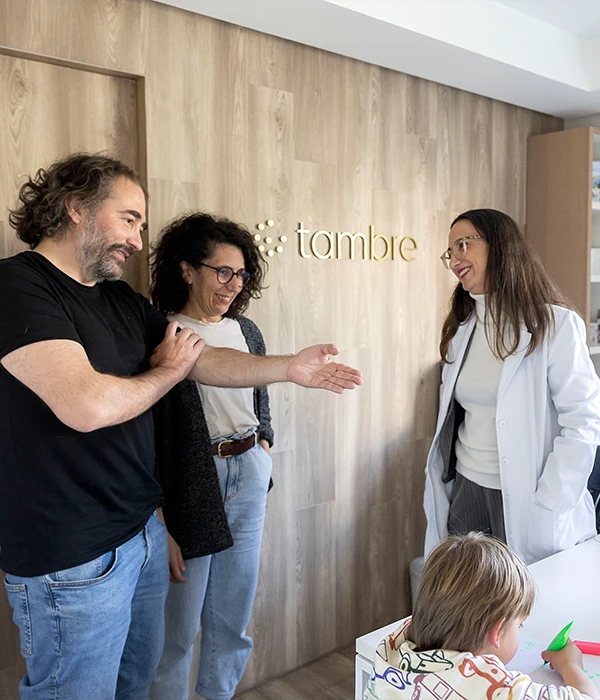
Dreams come true
Real stories like yours
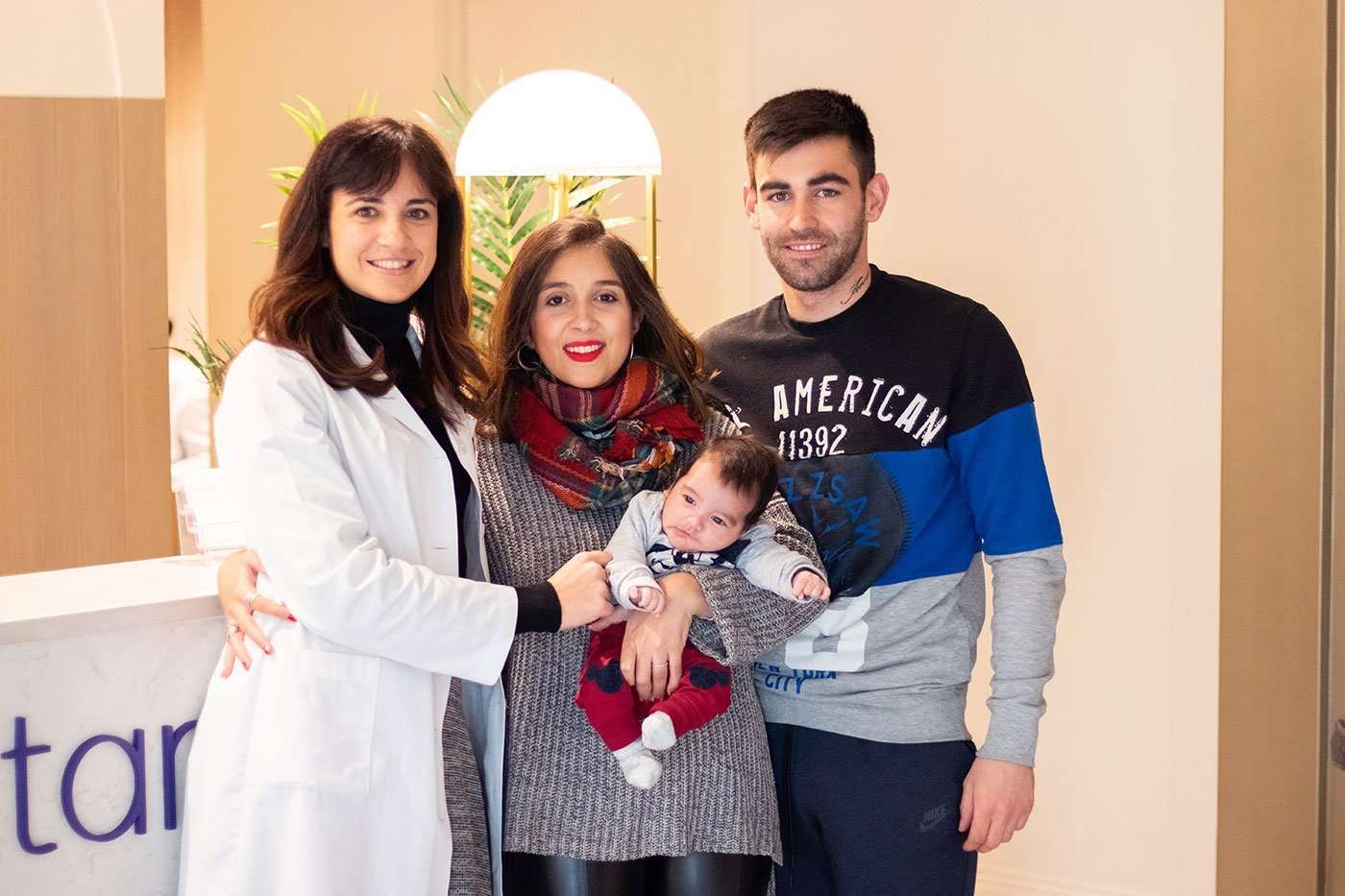
Andrea and Fran, from a difficult situation to great satisfaction
'Sometimes the processes take longer than we would like, but in the end, everything arrives.'
See more
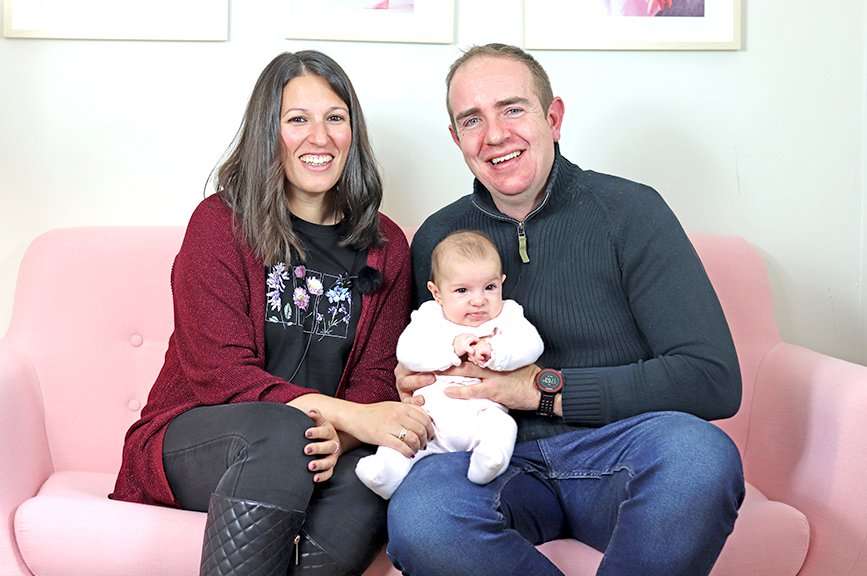
The story of Silvia, Nacho and Rebeca: the testimony that will make you smile
'We are very happy with the treatment we have received. The Patient Care workers are a real sweetheart’.
See more
We stay with you
Our support team is always at your side for whatever you need
Shall we call you?
Our support team is always at your side for whatever you need
Or send us an email to atpaciente@clinicatambre.com
